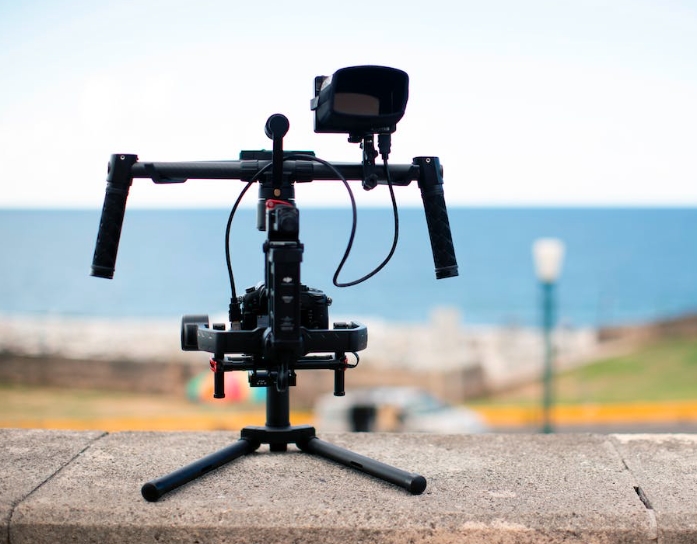The High Stakes World of Poker Tournaments: A Look into Competitive Poker Play is a comprehensive look into the world of competitive poker. Poker tournaments have become increasingly popular over the past decade, both in the physical and digital realms, and attract players from all over the world. This article will provide an overview of the objectives of poker tournaments, a brief history of competitive poker play, and an in-depth look at the strategies and rules of the game.
Poker tournaments are competitions in which players compete against each other in a game of poker. This can be in the form of a single-table tournament, a multi-table tournament, or a sit-and-go tournament. The objective of poker tournaments is for the players to accumulate the most chips by the end of the tournament. In this way, tournaments provide a unique way for players to test their skills against each other in a competitive environment.
Poker tournaments have a long and rich history, as the game has been around for centuries. The modern variation of the game, however, has its origins in the 19th century when it spread from the United States to Europe. Since then, the game has become increasingly popular and is now played in casinos and online. The professional poker circuit has also grown significantly in recent years, with major tournaments such as the World Series of Poker, the European Poker Tour, and the World Poker Tour providing large prize pools.
The strategies and rules of poker tournaments can vary depending on the type of tournament, so it is important for players to be familiar with the rules before competing. This article will discuss the different types of tournaments, the rules and strategies of competitive poker play, and the objectives of poker tournaments. With this information, players can gain a better understanding of competitive poker play and the high stakes environment of poker tournaments.

Types of Poker Tournaments
Poker tournaments are increasingly popular in the poker world. They are becoming a major attraction for both recreational and professional players. There are a variety of poker tournaments that one can participate in, each with its own unique rules and advantages.
Sit-and-Go (SNG) Tournaments: Sit-and-Go tournaments are a type of tournament in which the players are placed at the same table and the tournament ends when one player has won all the chips. These tournaments usually start as soon as the required number of players have signed up. SNG tournaments typically have a fixed buy-in and prize pool.
Multi-Table (MTT) Tournaments: Multi-Table tournaments are the most popular type of tournaments. These tournaments feature multiple tables, with each table containing a set number of players. The tournament continues until one player has won all the chips from all of the tables. MTT tournaments typically have a larger buy-in and prize pool than SNG tournaments.
Shootout Tournaments: Shootout tournaments are a type of tournament in which the players are seated at multiple tables and the tournament is divided into several rounds. In the first round, the players play until one player has won all the chips at the table. The winner of the first round moves on to the second round, while the other players are eliminated. This process continues until one player has won all the chips from all the tables.
Variations of Poker Played in Tournaments:
• Texas Hold’em: Texas Hold’em is the most popular poker game in the world. It is played in most poker tournaments, including Sit-and-Go, Multi-Table, and Shootout tournaments.
• Omaha: Omaha is another popular poker game. It is similar to Texas Hold’em, but with four hole cards instead of two. Omaha is commonly played in Sit-and-Go, Multi-Table, and Shootout tournaments.
• Seven Card Stud: Seven Card Stud is a classic poker game that is still popular in some tournaments. It is played with seven cards, with three face-up cards and four face-down cards. Seven Card Stud is commonly played in Multi-Table tournaments.
• Crazy Pineapple: Crazy Pineapple is a variation of Texas Hold’em. It is played with three hole cards instead of two and players must discard one of their hole cards before the flop. Crazy Pineapple is usually played in Sit-and-Go tournaments.
Rules and Gameplay
Rules and Gameplay of Poker Tournaments
Poker tournaments are a great way to test your skills against other players and can be an exciting form of competitive poker. Here we will explain the rules and gameplay of poker tournaments, along with strategies and tips for tournament play.
Blind Levels: The blinds in a poker tournament are the minimum bet a player must make at the start of each hand. The blinds in a tournament increase at predetermined intervals of time, allowing players to increase their bets as the tournament progresses.
Antes: Antes are a forced bet that each player must make at the start of each hand. Antes are usually a fraction of the blinds, and increase in size as the tournament progresses.
Rebuys: Rebuys are an option in some tournaments that allow players to purchase additional chips if their stack falls below a certain amount. Rebuys are usually allowed for a predetermined amount of time and up to a certain number of chips.
Strategies and Tips for Tournament Play
• Be patient and wait for your hands. When playing in a tournament, you don’t need to be the one to make the first move. Wait for good hands to come your way and be aggressive when you have them.
• Play tight early on. In the early stages of a tournament, it’s important to be conservative and play tight. The blinds are low and you’re not risking a lot of chips, so there is no need to take unnecessary risks.
• Pay attention to the size of your stack. Keeping track of your chip stack is an important part of tournament play. You should always be aware of how many chips you have and how many chips the other players have.
• Be aware of the blinds and antes. As the blinds and antes increase, you’ll need to adjust your strategy accordingly. You’ll need to be more aggressive when the blinds are high and play more conservatively when the blinds are low.
• Be aware of the other players. Pay attention to the other players at the table and take note of their betting patterns and style of play. This will give you an edge when it comes to making decisions about your own play.
• Don’t be afraid to bluff. Bluffing can be an effective tool in a tournament and can help you pick up pots when other players are afraid to make a move. Just make sure you don’t overdo it or you’ll end up losing more chips than you can afford.
• Play smarter and not harder. When playing in a tournament, it’s important to play smart and not try to get lucky. Focus on making the correct decisions and playing your best at all times.
• Be patient and disciplined. Patience and discipline are key when playing in a tournament. Don’t let your emotions get the best of you and always think before you act.
Major Poker Tournaments
The World Series of Poker (WSOP) is one of the most prestigious and popular poker tournaments in the world. It is held annually in Las Vegas, Nevada and is open to players from all over the world. It is the most prestigious tournament in the world of poker and is considered one of the most important events in the poker calendar. The WSOP offers a variety of poker games and tournaments, including Texas Hold’em, Omaha, Seven Card Stud, and more. It is the largest live poker tournament in the world, with over 500 events and millions of dollars in prize money.
The European Poker Tour (EPT) is another major international poker tournament series. It is held across Europe and is one of the biggest and most prestigious tournaments in the world. The EPT offers a variety of poker games, including Texas Hold’em and Omaha, and offers several different buy-ins and formats, from single-table tournaments to multi-table tournaments. The EPT is usually held in late summer or early fall and is considered one of the most important tournaments in the poker calendar.
The World Poker Tour (WPT) is another major international poker tournament series. It is held in various locations across the world, including Europe, Asia, and the Americas. The WPT offers a variety of poker games, including Texas Hold’em, Omaha, and Seven Card Stud, and offers a range of buy-ins and formats, from single-table tournaments to multi-table tournaments. The WPT is usually held in late winter or early spring and is considered one of the most important tournaments in the poker calendar.
Format and Buy-ins of Major Poker Tournaments
The World Series of Poker (WSOP) offers a variety of poker games and tournaments, including Texas Hold’em, Omaha, Seven Card Stud, and more. The buy-ins for WSOP tournaments vary from $50 to over $10,000. The format of the tournaments also varies, from single-table tournaments to multi-table tournaments.
The European Poker Tour (EPT) also offers a variety of poker games, including Texas Hold’em and Omaha, and offers several different buy-ins and formats, from single-table tournaments to multi-table tournaments. The buy-ins for EPT tournaments range from €500 to €10,000.
The World Poker Tour (WPT) offers a variety of poker games, including Texas Hold’em, Omaha, and Seven Card Stud, and offers a range of buy-ins and formats, from single-table tournaments to multi-table tournaments. The buy-ins for WPT tournaments range from $500 to $25,000.
Top Players and Famous Moments
Poker is a game of skill, strategy, and luck. It has become one of the most popular card games in the world. With the rise of the internet, poker tournaments have become even more popular with players of all skill levels. In the world of professional poker, there are some players that have become legendary for their success and skill. Here, we take a look at some of the most famous and successful poker players and some of the most memorable moments and hands in poker tournament history.
Top Players
Phil Ivey: Phil Ivey is widely considered to be one of the best poker players in the world. He has won 10 World Series of Poker bracelets, the most of any player in history. He has also won a World Poker Tour title and over $25 million in tournament prize money. His accomplishments have earned him the nickname “The Tiger Woods of Poker.”
Daniel Negreanu: Daniel Negreanu is one of the most popular and successful poker players in the world. He has won six World Series of Poker bracelets and two World Poker Tour titles. He has earned over $32 million in tournament winnings and is the all-time leader in career earnings. He is also known for his outgoing personality and willingness to engage with his fans.
Phil Hellmuth: Phil Hellmuth is one of the most recognizable faces in the poker world. He has won a record 15 World Series of Poker bracelets and has earned over $21 million in tournament winnings. He is known for his often boisterous behavior at the tables and his “Poker Brat” nickname.
Famous Moments and Hands
Chris Moneymaker’s WSOP Win: Chris Moneymaker’s 2003 win at the World Series of Poker is one of the most famous stories in poker history. Moneymaker, an online qualifier, won the main event and $2.5 million. His win sparked a poker boom and propelled poker into the mainstream.
Doyle Brunson’s Back-to-Back WSOP Wins: Doyle Brunson’s 1976 and 1977 wins at the World Series of Poker are considered two of the most impressive feats in poker history. Brunson won the main events in both years and became the first player to win back-to-back titles.
Phil Ivey’s $2.6 Million Pot: In 2014, Phil Ivey won a $2.6 million pot against Paul Phua in a high-stakes cash game. The hand, which is considered one of the biggest pots ever played in a cash game, saw Ivey win with a straight flush against Phua’s full house.
Etiquette and Culture
Overview of the etiquette and culture surrounding poker tournaments:
Poker tournaments have been around for centuries, and with them comes an etiquette and culture that players must adhere to if they want to be successful in the game. Proper behavior at the poker table is important for maintaining a professional, civil atmosphere among players. Common tournament rituals include exchanging pleasantries with opponents, honoring dealer instructions, and proper tipping.
• Exchange Pleasantries: Before a tournament begins, it is customary for players to introduce themselves and exchange pleasantries with their opponents. This helps create a more friendly atmosphere, and allows players to get to know each other a bit better.
• Honor Dealer Instructions: It is important to respect the instructions given by the tournament’s dealers. This includes not speaking out of turn, not disrupting the flow of the game, and not engaging in any other forms of disruptive or rude behavior.
• Proper Tipping: Tipping the dealers is a common ritual in poker tournaments. This is an act of respect and gratitude, and helps ensure that the tournament runs smoothly. It is important to tip the dealers appropriately – not too much or too little – as this will help make sure that the tournament is enjoyable for all participants.
• Table Talk: Table talk is discouraged in poker tournaments. This includes insulting opponents, making disruptive comments, or otherwise engaging in distracting behavior. This is done to maintain a professional atmosphere and ensure that the game runs smoothly.
• Tournament Etiquette: There are many other rules of etiquette that players must adhere to in poker tournaments. This includes not wearing distracting clothing, not engaging in collusion with other players, and not arguing with tournament officials. All of these rules help ensure that the tournament is enjoyable for all participants.
Overall, there is a wide variety of etiquette and culture surrounding poker tournaments. Players must adhere to these rules in order to ensure that the tournament is enjoyable for all participants. By following these rules, players can ensure that they have a pleasant and successful experience in the tournament.

Online Poker Tournaments
Online poker tournaments are one of the most popular forms of modern poker, allowing players to compete in a virtual setting from the comfort of their own home. Participating in online poker tournaments is relatively simple, as there are a multitude of online poker sites and mobile apps available to play. Popular online poker sites such as PokerStars, 888Poker, and Full Tilt offer a wide range of popular online poker tournaments, ranging from freerolls to high-stakes games and everything in between. By signing up for an online poker account, players can quickly join a tournament and start playing against opponents from all around the world.
Playing online poker in a tournament setting differs greatly from playing in-person poker. Online tournaments are often much faster-paced than in-person tournaments, as players are not able to take their time and analyze each decision. Additionally, playing online does not provide players with the opportunity to read opponents’ body language or facial expressions. On the other hand, playing online can be much more convenient, as players do not need to travel to a physical location to play, and can join tournaments from any device with an internet connection. Furthermore, online tournaments often have lower buy-ins and more players, making it easier for players to win money without having to risk as much.
Conclusion
The world of high-stakes poker tournaments offers a unique and thrilling experience for anyone looking to test their skills in an exciting and challenging environment. The stakes can be incredibly high, but with the right strategy, mindset, and dedication, anyone can become a successful poker tournament player. The game of poker is constantly evolving, so it’s important to stay on top of the latest strategies and trends. With a little bit of hard work and dedication, anyone can become a successful poker tournament player and make their mark in the high-stakes world of poker. The rewards can be great, and the competition is fierce, but the rewards are worth it. So, if you’re looking to take your game to the next level, consider joining the high-stakes world of poker tournaments.
FAQs
1. What is the High Stakes World of Poker Tournaments?
The High Stakes World of Poker Tournaments is a series of tournaments with large buy-ins, high prize pools, and intense competition. Players from all over the world compete for the top prizes, which can reach into the millions.
2. What are the types of poker tournaments?
There are many different types of poker tournaments, including freezeouts, rebuys, satellites, shootouts, and deepstack events. These tournaments come in many different formats and structures, including single table, multi-table, and heads-up tournaments.
3. What do I need to know to participate in a poker tournament?
To participate in a poker tournament, you should be familiar with the rules of the game and the different strategies used in tournament poker. It is also important to be comfortable with the tournament structure and the size of the buy-in.
4. How much do poker tournaments cost?
The cost of a poker tournament can vary greatly depending on the type of tournament and the buy-in. Some tournaments can have buy-ins as low as $1, while others can have buy-ins as high as $10,000 or more.
5. What are the best strategies for playing poker tournaments?
The best strategies for playing poker tournaments depend on the structure and the format of the tournament. Generally, you should focus on playing tight, aggressive poker and adjusting your strategy according to the table and your opponents.
6. What is the difference between cash and tournament play?
The main difference between cash and tournament play is that in cash games, players can buy in for any amount of money and can cash out whenever they want. In tournament play, players must pay a fixed buy-in and can only win money if they finish in the top positions.
7. How do I win a poker tournament?
To win a poker tournament, you must outlast all of your opponents and have the most chips at the end of the tournament. This requires skill, luck, and a sound strategy.
8. What types of prizes can I win in a poker tournament?
The prizes in a poker tournament can include cash, tournament entries, merchandise, and more. The top prizes in the largest tournaments can reach into the millions of dollars.
9. Are there any tips for playing in a poker tournament?
Yes, there are many tips for playing in a poker tournament. These include playing tight, aggressive poker, adjusting your strategy according to the table and your opponents, and monitoring your chip stack.
10. What are the benefits of playing in a poker tournament?
The benefits of playing in a poker tournament include the chance to win large prizes, the opportunity to test your skills against the best players in the world, and the thrill of playing in a competitive environment.


















